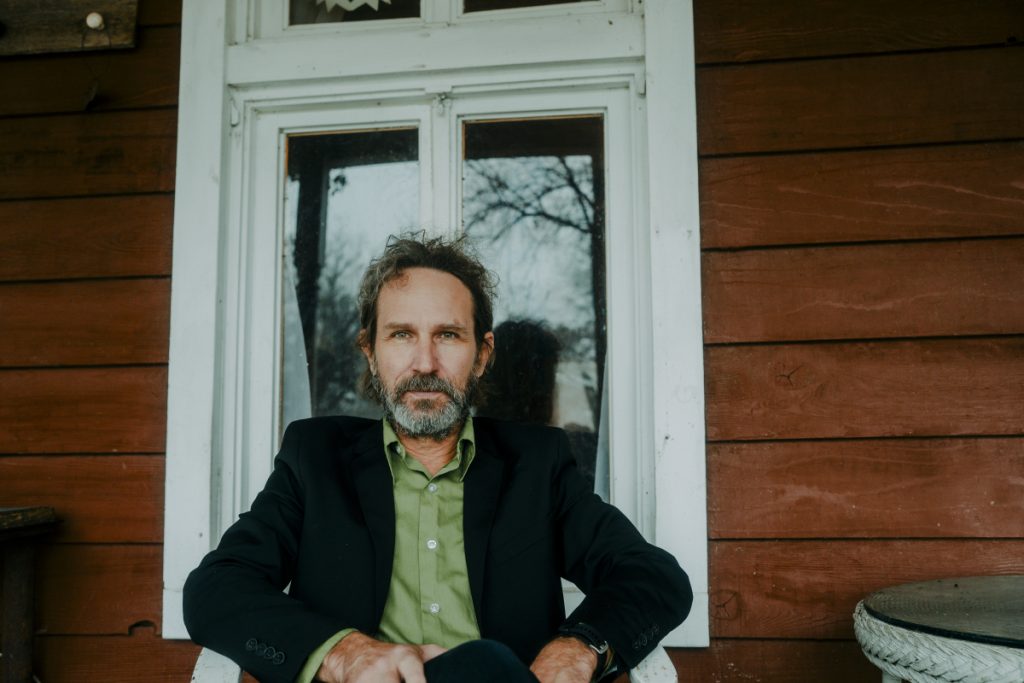
Will Johnson knows he’s too far into his career to change his ways now.
So, if his desire is for audiences to engage with his forthcoming solo album, Diamond City, as a cohesive whole, who are we to deny him?
“It may be a bit antiquated, but that’s just the best way for me, and that’s the most engaging way for me,” Johnson said during a recent conversation. “How can I change now? I’m like — between the Centro-matic and South San Gabriel and the collaboration and the solo stuff, like 30 records in or whatever. What am I supposed to do now?”
It should be noted Johnson was laughing as he said this, but the humor only underscores the truth. The Missouri-born and Denton-bred singer-songwriter has been a creative force within and beyond Texas for nearly four decades now, amassing a reputation as an artist as peerless as he is prolific.
These days, the 54-year-old is logging time as a member of Jason Isbell’s band, the 400 Unit, as well as carving out time for solo endeavors like the exquisite Diamond City, Johnson’s 10th solo album, which drops April 4. Conceived as a raw, unfiltered collection of four-track recordings, Johnson — ever the savvy collaborator — enlisted long-time friend and creative partner Britton Beisenherz to help polish these nine songs.
I spoke with Johnson about Diamond City’s origins, protecting the vulnerability of songs and the value of collaboration. The following conversation has been lightly edited and condensed.
An irony about Diamond City that struck me — songs you started yourself, and then handed them off to Britton, and they sound far fuller than you’d expect from a guy in a room with a guitar and a tape deck.
The way it started, I was just making home recordings. I try to make them clean enough or at least tidy enough for potential release down the line. But with this particular group of songs, I wrote and recorded them right after I signed on for the 400 Unit stuff and then took them to Britton’s. We have a sort of tradition where I’ll take home recordings and four-tracks over to his place and we’ll clean them up a little bit and we’ll put them in the archive.
This time, he just slowly started adding elements to each song, not with any kind of schedule in mind and not with any real master plan. By that point, I was out on the road with the 400 Unit. Every few days, I would just get this little gift in my phone, and it would be his additions to a certain song.
What do you think it is about this particular group of songs that he responded to, and felt compelled to take them out and go “I think this needs something”?
I don’t know — it’s interesting. Maybe the reason they fit together in a certain way is because they were all written in the same week or 10-day span.
I wasn’t making a conscious effort to make the record. I think I was just trying to write the record. But even still, the recordings just had a certain kind of feel to them. Collectively, the whole ride made sense.
Sometimes, taking a bunch of people into the studio isn’t necessarily the answer. That doesn’t guarantee you’re going to get something interesting or engaging. Sometimes a record just needs to be simple, and kind of shoestring and a little ramshackle. The listener doesn’t always have to know or be aware of that, so long as it comes across in a truthful way.
But those raw recordings are also a very straight line, from you to the song. What you’re talking about, you can add all those layers, and you can start to lose sight — maybe vulnerability gets tamped down, or you sand off the edges, whatever.
That’s true. It’s entirely possible to just overcook a record, where you suck the life out of it, and I’ve seen it happen with a lot of people. I’ve done it myself where it’s like, “Man, I sat on this too long. I probably overthought it.” … A lot of the time, take one has the energy, and it has the innocence that is really engaging. I try to keep that in mind, and I try to still go for that.
You obviously have immense comfort with collaboration. What do you take from those different kinds of collaboration? What does it do for you as an artist?
Historically, it’s given me the best seat in the house to get good insight on how some of my friends and favorite artists go about constructing something, go about their work and go about preparation for that work. That was true with Monsters of Folk; it was true with Overseas; true with Jason Molina — everybody’s got their different approaches and voices and styles. The more I can absorb, the more ways I can see about approaching melody, approaching making a record … the better — I hope — the better rounded I am as a musician.
Preston Jones is a North Texas freelance writer and regular contributor to KXT. Email him at preston@kxt.org or find him on Bluesky (@prestonjones.bsky.social).Our work is made possible by our generous, music-loving members. If you like how we lift up local music, consider becoming a KXT sustaining member right here.







 Join host Benji McPhail
Join host Benji McPhail 




